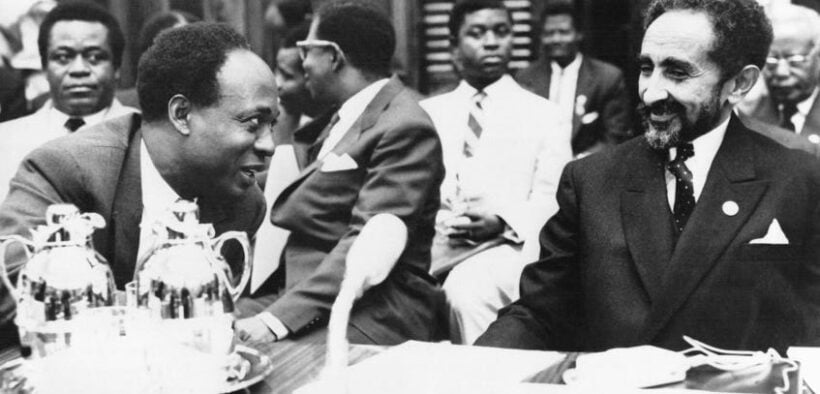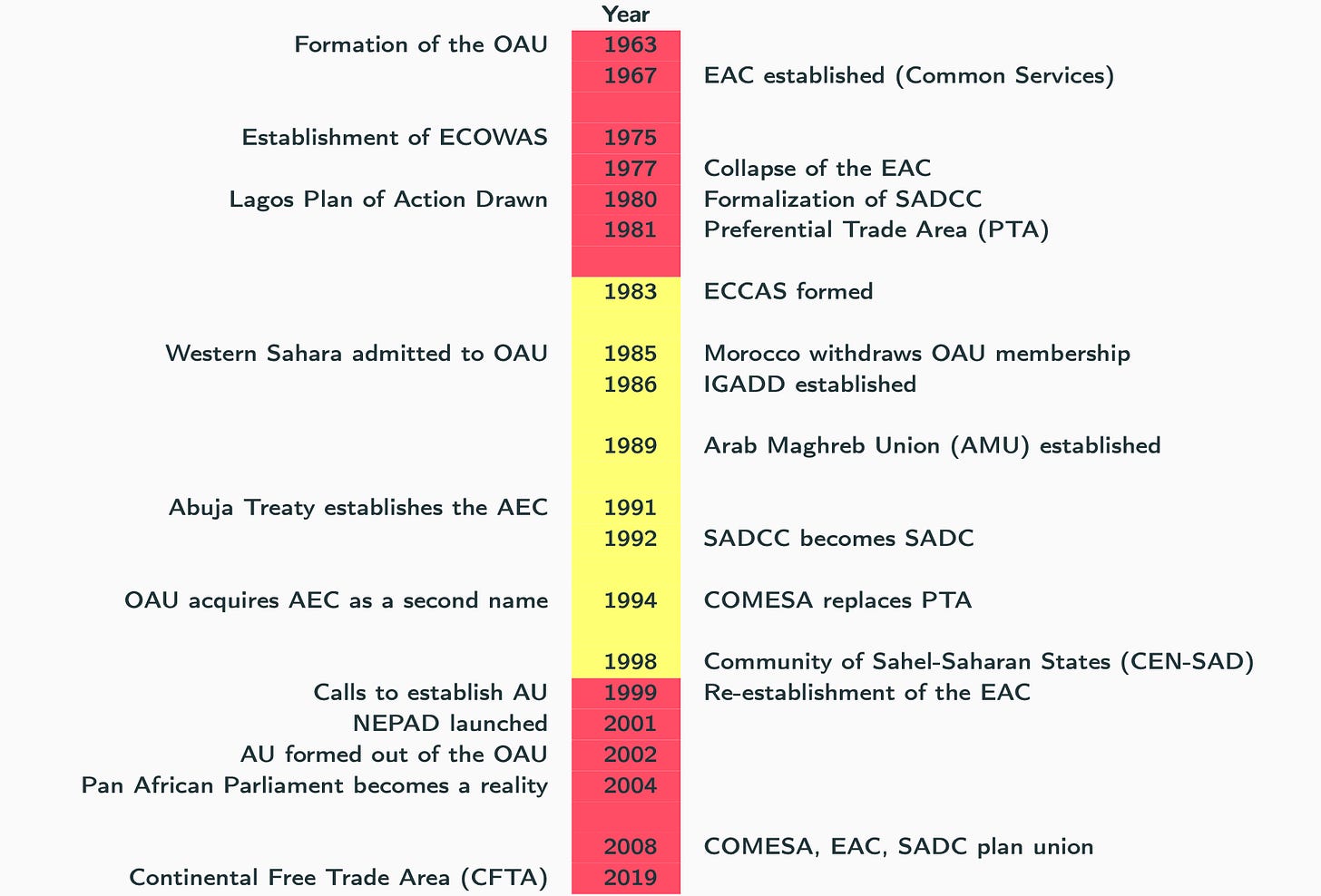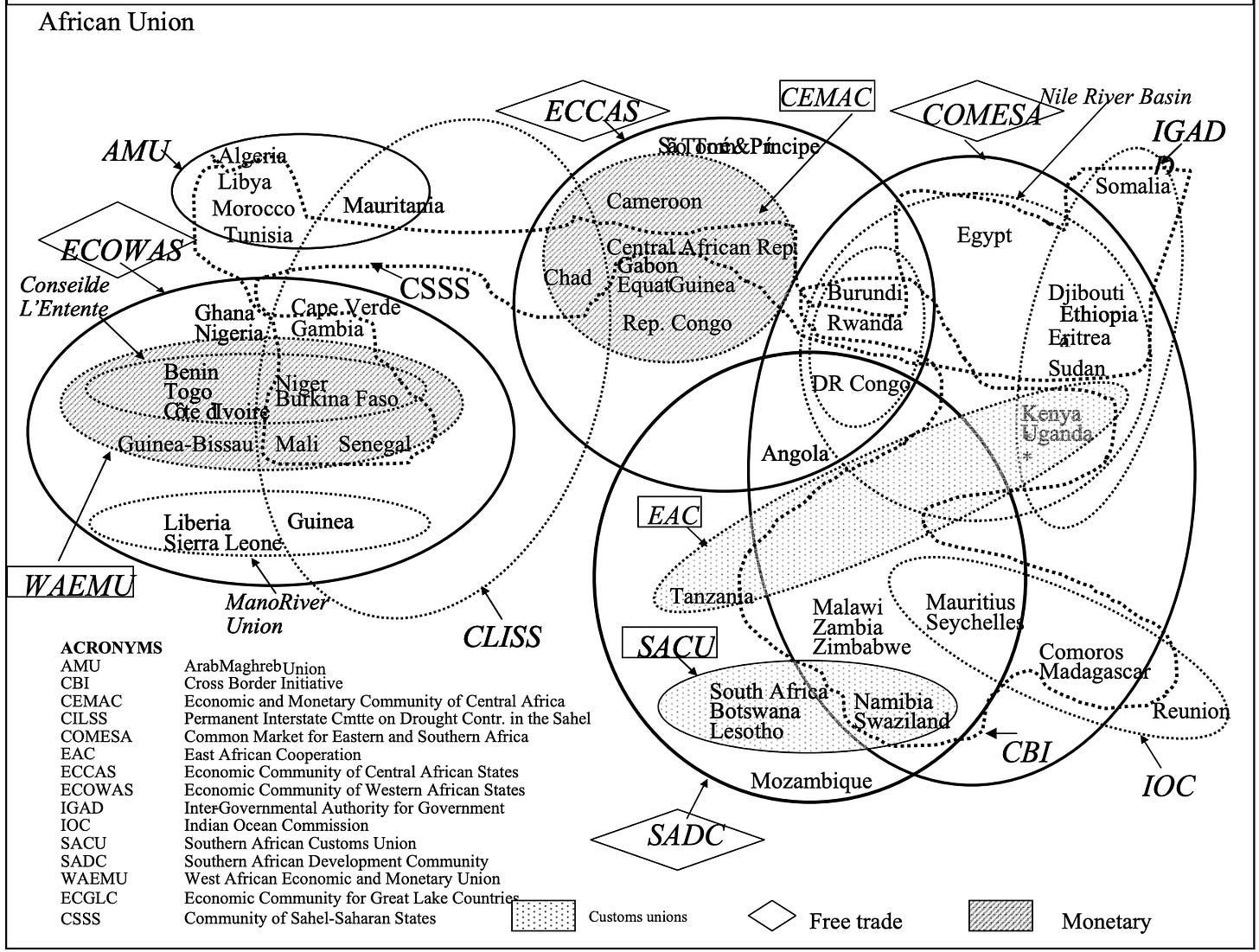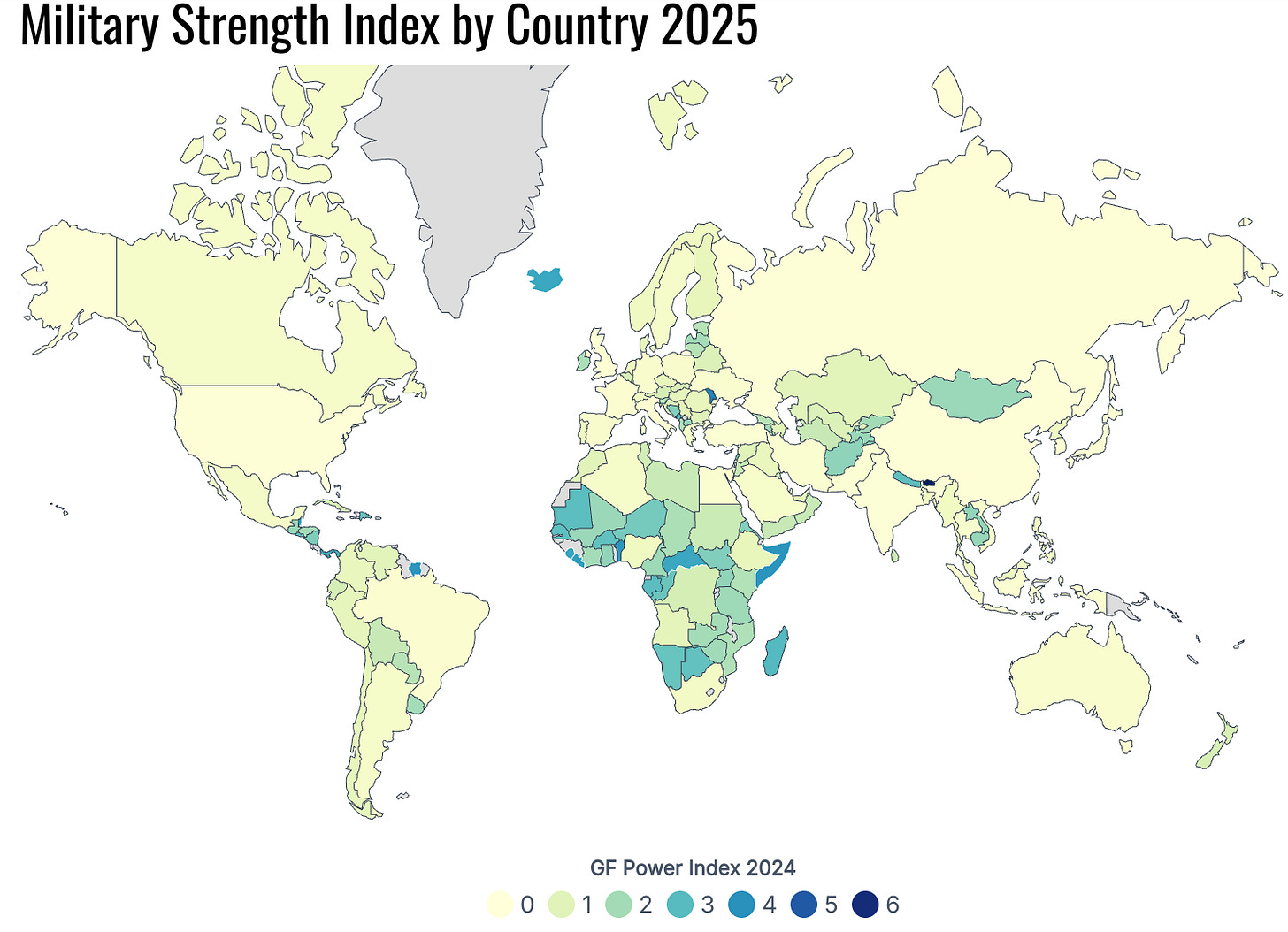
This post answers two questions. First, why are African international organizations (IOs) so weak? Given the weakness of many of the region’s states, shouldn’t it be possible for the Continent’s interstate organizations to dictate and enforce collective policies? After all, African states are infamous for outsourcing significant chunks of their policymaking. Second, what can be done to strengthen African IOs?
Answering these questions is important in an era of multipolarity and shifting global geopolitical alliances. The long twentieth century has ended; and the international system is about to get a lot more dangerous for weak states. And given their current levels of capacity and lack of strategic self-awareness, African states will only stand a chance of successfully navigating the next half century if they figure out smart ways of banding together.
How can the Continent’s 54 recognized states do this? Below I make the case for replacing the ideologically-heavy and consensus-driven model of African unity of the last six decades with a more practical model that recognizes differences in capacity and influence.
We live in an era when the Continent desperately needs serious strategic leadership. Which is why it’s important to accept that the Nkrumahs, Nyereres, and Gowons of our time are more likely to emerge if states that step up to the plate are able to reap the benefits of bankrolling regional cooperation by acquiring agenda setting powers and gaining more influence on Continental affairs.
To be blunt: the current model that largely gives Burundi as much weight as Nigeria in Addis Ababa is not working. As I argue below (and invite critiques), granting the Continent’s regional hegemons greater institutional authority to direct traffic in Addis and within the RECs wouldn’t necessarily contravene the core values of Pan-Africanism as envisioned by the Independence Generation. Both in its Black Atlantic origins and instantiation on the Continent, Pan-Africanism was never about states. It was about African peoples. Which is why adherents of Pan-Africanism — whose core goal has always been greater integration of the Continental and advancement of its diverse peoples — should be open to models of cooperation that achieve results, rather than those that merely privilege states (and the region’s complacent ruling elites). The fact of the matter is that the current model of everyone being equally in charge only ensures that no one is ever really in charge.
Collective action is hard. Incentives matter, especially when dealing with sovereigns under conditions of anarchy. And, even though successful in bringing and keeping an entire Continent of disparate peoples and interests together, even an ideology as rich and storied as Pan-Africanism has its limits. Successful inter-state cooperation also requires paying attention to objective material realities on the ground.
I: Weak (and low-income) states create weak international organizations
There’s a Somali proverb that says a wise old man only gives his walking stick to someone from whom he can take it back. In plain speak, this is a caution against delegating powers/authority that one cannot take back or sufficiently control. One must always guard against agency loss.
The lesson from the proverb is applicable to the realm of international relations. States like to hog their sovereignty and rarely delegate powers and authority to entities that they cannot control — including international organizations. A straightforward observable implication of this insight is that, all else equal, stronger states tend to form stronger international organizations.
This is for two reasons. First, strong states are the proverbial wise old man who can credibly take back (most) delegated powers and authorities. Therefore, they are more likely to confidently delegate powers to international organizations than their weaker counterparts (the juridical states of the world). Of course any international organization (IO) will have variation in state strength and therefore influence over the IO’s bureaucracy and operations. For example, within the EU every country knows its place relative to France and Germany (despite all the ideological and institutional genuflection to consensus and a shared European identity and values). The point here is that the very ability to not have to rely on an IO for critical state functions — typical of strong states — serves as a credible threat of exit and therefore avoidance of too much agency loss.
To extend the above example with application to states, our proverbial wise old man tends to either hand over the walking stick to a trusted “perfect agent” (virtually impossible) or only ever does so because he can stand on his own feet without the stick if he had to wrestle it back (rare among senior citizens that need a walking stick). Otherwise, the old man simply keeps his walking stick to himself or only ever hands it over to the weakest possible handlers. In other words, weak states leave lots potential gains to cooperation on the table on account of their hoarding of sovereignty and inherent incentives to create weak and ineffective inter-state organizations.
Second, strong states have the capacity to operationalize the mandates and functions of international organizations. They have the human capital, fiscal capacity, and domestic bureaucratic-administrative structures required for the implementation of their treaty obligations. For instance, what’s the point of a common tariff arrangement if a member country can’t police the flow of goods through its borders? And why bother to sign treaties when member states can’t even afford to pay for an IO’s bureaucracy and operations?
The combination of the first and second reasons creates an equilibrium of IO weakness, whereby weak states tolerate the proliferation of IOs in order to facilitate their proclivity for forum shopping as a way to avoid delegating sovereignty. Instead of having one or a few strong organizations that can bundle issues and use that same power to enforce cooperation, it is far easier to proliferate and distribute small bits of sovereignty among weak organizations that collectively amount to nothing. In this manner, the proliferation of IOs (and related forum shopping) becomes a mechanism not of pursuing state strategic interests per se as it is commonly understood, but of merely hoarding sovereignty.
II: When everyone is in charge no one takes the initiative (or responsibility)
Which brings us to the African Union (AU) and the various regional economic communities (RECs) on the continent. A fundamental problem with interstate cooperation in Africa is that decades of norms that encourage consensus and equality among states have resulted in the creation of institutions that do not reflect the distribution of capabilities in the region. Consequently, Africa’s would-be hegemons have under-invested in Continental cooperation. It follows that more robust continental cooperation across a range of domains is more likely to arise if the distribution of responsibilities, agenda setting powers, and benefits match state-level capabilities.
This shift wouldn’t necessarily contravene the spirit of Pan-Africanism. Recall that right from its emergence in the Black Atlantic to its taking root on the Continent, Pan-Africanism as an ideology was always about Africa’s peoples and not its states. In fact, the committed ideologues among the Independence Generation went as far as trying to redraw borders (think of the Mali Union, Ghana-Guinea-Mali Union, Tanzania, and the like). While it’s neither feasible nor defensible to prioritize a redrawing of Africa’s borders (more on this in a future post), it’s still worth emphasizing that at its core Pan-Africanism is supposed to be about global connectedness among the Continent’s peoples. It’s not an ideology anchored on states. The states should be viewed merely as vessels of cooperation. Which in turn would mean that distributing agenda setting powers among the states for the sake of more efficient cooperation would not necessarily go against the spirit of Pan-Africanism.
Some readers may be wondering: is Pan-Africanism still relevant for Continental cooperation today? The simple answer is absolutely YES! Africa is diverse Continent whose peoples’ unity should never be taken for granted. The very creation of the Organization of African Unity (OAU) was in large part a miraculous triumph of Pan-Africanism as an ideology. Without it, the region would struggle to create a shared narrative of both a common origin and shared destiny for all African peoples regardless of their ethnicity, race, creed, or culture.
While it may seem natural ex post that all African peoples should band together, it wasn’t always so. In the lead up to independence there were real and serious divisions on the continent on the basis of culture, language, ideology, neo-colonial dependency, as well as the preferred pace and manner of Continental integration. It’s a credit to Pan-Africanism that it forced the Independence Generation to overcome these divisions and compromise on the creation of the OAU and other RECs.

Unfortunately, the compromises enabled by the ideological nudge of Pan-Africanism also sowed the seeds of ineffectiveness. For instance, the OAU was not founded as an organization that set and enforced treaties to promote robust regional integration in service to member states’ political and economic development. Instead, it emphasized consensus over action, prioritized low-stakes common denominator issues, and quickly became an effectual dictators’ club by embracing non-interference as a core philosophy. Not even events in the Congo, Zimbabwe, or South Africa, and countless other domestic catastrophes were egregious enough to focus minds in Addis. Whenever the rubber met the road, the OAU simply punted.
Among other reasons, I would argue that the OAU floundered partially because the region’s ruling elites (and intellectuals) could still earn their ideological bona fides by paying lip service to Pan-Africanism at little cost. Talk is cheap.

Due to the OAU’s fecklessness (caused in no small part by its weak members hoarding sovereignty), the Continent saw a proliferation of IOs with overlapping/contradictory mandates. Countries with small economies and barely any diplomatic staff joined multiple organizations — partly due to isomorphic mimicry, but also to protect their precious sovereignty by retaining the option of forum shopping. It did not matter that some of these IOs did virtually nothing.
III: Continental institutions must be infused with a clearer distribution of power and responsibilities
Since the late 1990s there have been concerted attempts to rejuvenate Continental cooperation and rationalize the regional arrangements that proliferated in the preceding decades. The AU (especially its peace & security architecture) and the African Continental Free Trade Agreement (AfCFTA) have been the most prominent achievements. However, not even these advancements go far enough. The old problem of weak states avoiding delegation and unable to enforce treaty obligations (including funding AU operations) endures. Despite important changes, there’s still too little recognition of differences in capability within AU institutions.
To understand how far the AU has to go, it’s worth recalling what it was supposed to do.
When Olesegun Obasanjo, Thabo Mbeki, and Muamar Gaddafi sought to transform the OAU into the AU, they had three distinct goals in mind. Having seen Nigeria bear the burden of ending the conflicts in the Mano River region, Obasanjo was primarily motivated to create a security architecture that would shoulder the cost of pacifying the Continent. Mbeki wanted to deepen economic cooperation, with South Africa becoming the gateway to a New Africa (he called his project the African Renaissance). On his part, Gaddafi envisioned a Continental political and currency union as well as a military alliance (of course he saw himself as the head of such a union, a King of Kings).
The core motivations (and idiosyncrasies) of the individual leaders/countries aside, all three were noble goals.
First, the African Union must play a leading role in pacifying the Continent, including coercively. Failures like the disastrous civil war in Sudan and toleration of state failures in Somalia, South Sudan, and the Central African Republic will forever be blots on the record of all incumbent leaders in the region. Second, it is a no brainer that African economies would tremendously benefit from greater economic integration. The AfCFTA is a great start, but more should be done to ease the flow of labor, goods, and services across the Continent. Third, at a time when everyone seems eager to arm themselves to the teeth, it would be naive for African countries to remain militarily weak. The Continent needs a serious joint defense architecture, possibly buttressed with a nuclear deterrence (the obvious candidates here are Nigeria, South Africa, and Algeria — Egypt would be a natural here, but it has for decades outsourced large chunks of its international security policymaking as part of treaty obligations). Increasing African military strength should be viewed as more important than membership in the G20 or the United Nations Security Council (mostly because those will naturally follow).

A key lesson from the last 500 years of African history is that military power is essential for avoiding foreign predation, dispossession, and humiliation. Put simply, you cannot have nice things if it’s virtually costless for foreigners to come and grab it. Furthermore, a lot of the postwar norms and institutions of global dominance by the victors of World War II — which have largely coddled militarily weak states under conditions of dependence — are on their last legs. It’s getting increasingly harder to avoid paying a heavy price for being complacent and strategically unfocused. And no one will be there to rescue failing states.
Which is why it’s worth seriously interrogating how the Continent can achieve the dreams that motivated the creation of the African Union. Reforming the AU is admittedly a long shot. But it’s still worth stating for the record that the stakes are way too high for African states to settle for the prevailing low quality of regional cooperation. Below are four suggestions that I think should guide a rethink of Continental cooperation.
1) Abandon zombie bad ideas and cheap ideological posturing:
One of the more frustrating aspects of studying policy on the Continent is the extent to which discourse tends to be divorced from objective reality. When it comes to Continental cooperation, for example, you’ll often hear people talk of a common currency (forget that the Continent currently isn’t an optimal currency area for a whole host of reasons); or call for immediate political union (how would that solve the problem of weak state capacity?)
As a general matter, such claims are often mere cheap talk intended to demonstrate ideological bona fides without a care for practical implications.
This habit must stop. It’s time to go back to the practical outcome-oriented Pan-Africanism of the Independence Generation. To them, Pan-Africanism wasn’t a luxury habit of self-assured ideologues but a mobilizing force that enabled them do so much with so little. Cabral, Nkrumah, Nyerere and their contemporaries weren’t focused on being invited to critical anti-colonial workshops in Oslo. They wanted political and economic independence, self-mastery, and rapid modernization of the Continent. These goals were their North Star as they navigated the practicalities of forging Continental unity and building new states. They certainly had their faults, but no honest appraisal would accuse of them of the sort of navel gazing common today among many self-described arch Pan-Africanists.
2) Internalize the idea that, in addition to causing myriad domestic problems, weak states create weak international organizations:
As I have argued before, state weakness remains a millstone hindering political and economic development in Africa. I’ve discussed the domestic implications of this countless times here. As noted above, state weakness also has implications for international relations. Weak states create weak international organizations. Period. This leaves the region’s states unable to protect their people either individually or collectively from the rapacious bits of the international system.
Yet there remains a strong ideological opposition to state strengthening in Africa. There are very few unapologetic champions of state-building in Africa. Those of us on the side of accelerating modernizing progress on the Continent tend to disproportionately fixate on the African states’ colonial origins and its autocratic tendencies over the last 60 years to deligitimize any and all attempts at state-building. The reactionaries/traditionalists in charge erroneously view state-building as inimical to their interests (stationary banditry would yield much higher returns for them). Finally, most foreign interventions (including most forms of foreign aid) inherently undermine state capacity.
Here, I’d like to challenge the Continent’s elites and intellectual to interrogate why it is that they comfortably cite examples of successful state-let modernizing projects elsewhere but somehow balk at the idea of state-building on the Continent. Things like piped water, roads, working public schools and hospitals, and thriving economies don’t fall like manna from heaven. I know I sound like a broken record on this, but you can’t simply “good governance” or “elect” your way to these outcomes.
3) Reform Continental institutions to reflect regional distribution of capabilities:
I suspect that unsettling the equality and consensus norms at the AU will be a tough sell in African capitals, but it’s absolutely necessary. Incentives matter. Despite being a significant improvement on the OAU, at present the AU’s institutional structures provide very little incentive for countries like South Africa or Nigeria to invest in the organization. Even the peace and security council, which was supposed to be the most important departure from the AU’s consensus model, still has a convoluted design that dissipates power.
The net effect is that the African Union and the Continent’s REC can only be as strong as their weakest members. Dues go unpaid (African states have historically funded barely 40% of the total budget). Donors provide the lion’s share of the funding, and direct traffic in terms of initiatives. Lax treaty enforcement is the norm. Decisiveness is rare.
A natural starting point towards realizing this change would be the AU’s peace and security council — what I propose here is just one idea. There should better ones out there. Instead of the current model of rotating subregional representation, states with the most powerful militaries in each of the five regions (ECOWAS, EAC, ECCAS, AMU, and SADC) should have permanent seats. The additional seats on the PSC would be rotational on a three-year basis, with states having to meet a minimum threshold of military capability and cash contribution to qualify for election. The determination of military strength should be straightforward, perhaps done by a committee of military experts and reviewed every decade following clear guidelines. Of course, this would encourage military competition within the RECs — which wouldn’t be a bad thing.
The same test would apply when deciding who should represent the region in the United Nations Security Council (UNSC) were it to be expanded, or the G20. Instead of a rotational format as many have suggested, the two most powerful militaries (again, reviewed every decade) and biggest economies, respectively, should take the seats. Everyone should ask themselves a simple question: Beyond the symbolic genuflection to the norm of equality, what exactly would the region achieve by having its Burundis and Chads rotate in and out of the permanent African seat at the UNSC?
4) Cultivate a race-to-the-top political culture and serious diplomacy:
Late last year there was an article in Politico that, in my view, should have gotten more airtime on the Continent. The article documented how African embassies in Washington are underperforming. With a few exceptions like Tanzania, these postings have become sinecures for some of the least talented people. Even major countries like Nigeria have gone for whole stretches without appointing (serious) ambassadors. It’s almost as if African countries appoint ambassadors simply because that’s what sovereign states are supposed to do, but have no real agenda behind such moves (isomorphic mimicry at its worst). Indeed, many countries and politicians then go about wasting money by contracting all manner of quite frankly sketchy lobbyists that seldom coordinate with their embassies. To put it mildly, the whole situation maddeningly farcical.
The same strategic unseriousness extends to most diplomatic postings around the Continent — where, despite the valiant efforts of pockets of excellence in the secretariats, virtually all work begins and ends with summitry. Whether in Addis or in the RECs, one doesn’t get the sense of urgency demanded by objective realities on the Continent.
How can the region get out of its diplomatic funk? Competition might help. For too long the Continent has lacked positive race-to-the-top competition. In the same vein, having IOs that actually deliver on tangible outcomes might prove that it pays to be a strategically serious country. The proposals I’ve outlined above would arguably contribute on both fronts.
IV: Conclusion
Africa is not a country, but the ideology of Pan-Africanism has over the decades done a fantastic job of fostering a community of diverse peoples with an imagined common origin and destiny. It’s a shame that African elites have so far failed spectacularly at using this advantage to build effective inter-state organizations. As I have argued above, leading drivers of this problem are the region’s perennially weak states and the institutional expressions of a political culture of interstate equality and consensus.
It follows that the Continent must address these twin challenges head on if it is to have strong interstate organizations. State-building must be prioritized. And institutions, both in Addis Ababa and among the RECs, must reflect the differential capabilities among states. These shifts, I believe, would markedly improve the region’s chances of realizing the promise of Pan-Africanism.

